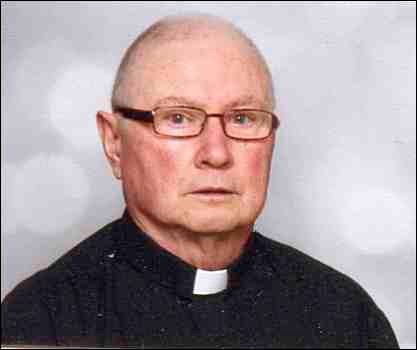“Not again,” Ed my old neighbour grumbled. My former neighbour from Saskatchewan had no patience when I reminded him that forgiving someone is a gift you give yourself.
Ed sees forgiveness as a useless activity that is a waste of our time. Ed said that extending or accepting forgiveness accomplishes nothing. According to Ed, “Forgiveness is like a plate that gets dropped on the floor. The plate smashes into many pieces. It is completely broken. The person who dropped it says, ‘I’m sorry.’ Does the plate become like it was before it was dropped? Of course not, the plate is still in pieces. To say we are sorry fixes nothing.”
I asked Ed if the person said they were sorry and also bought a new plate to replace the broken one, would that satisfy him? He answered that it might. He remained firm in his opinion that forgiveness fixes nothing. He wonders why we would extend forgiveness towards others when some actions seem too vicious to forgive? He is sure sometimes people do not deserve forgiveness, because even if you do forgive them, they keep on offending and hurting you again and again.
I believe forgiving others can be extremely hard to do. It is part of our human nature to fight back when someone offends us. Our response is often resentment, anger and a willingness to get even. Without offering forgiveness we get trapped in holding onto a situation that cannot be fixed. If a plate is broken in many pieces on the floor, it cannot be glued back together. The pieces need to be swept up and discarded. You can leave the pieces on the floor and keep blaming the person who broke the plate, or you can let it be forgotten. Holding a grudge against someone for what they have done or not done traps you into hanging onto what needs to be overlooked.
It is a sad part of our human nature that we tend to blame others completely and totally for our grievances. Blaming others lets us off the hook of any responsibility concerning our resentments.
Forgiveness is a gift of freedom to be accepted and given. Most of us would not claim to be perfect and admit that have said and done things that have hurt others sometimes deeply. We do not expect ourselves to be blameless, but we expect others to be without fault as if they should be perfect. Forgiveness accepts that others cannot be perfect and never hurt or offend us. Forgiveness is a choice we make towards ourselves and others.
As Christians, we seek God's forgiveness, for we offend God and others in our thoughts, words, and deeds. 1 John 1:10 says, “If we claim we have not sinned, we make him (God) out to be a liar and his word has no place in our lives.” God in love knew that all people need forgiveness for being trapped in blaming and resenting themselves and others. God sent Jesus to be perfect for us before God His Father, and to be an atoning sacrifice for our sins. As believers in Christ, we have the gift of God's forgiveness so that we would also forgive others that offend us.



